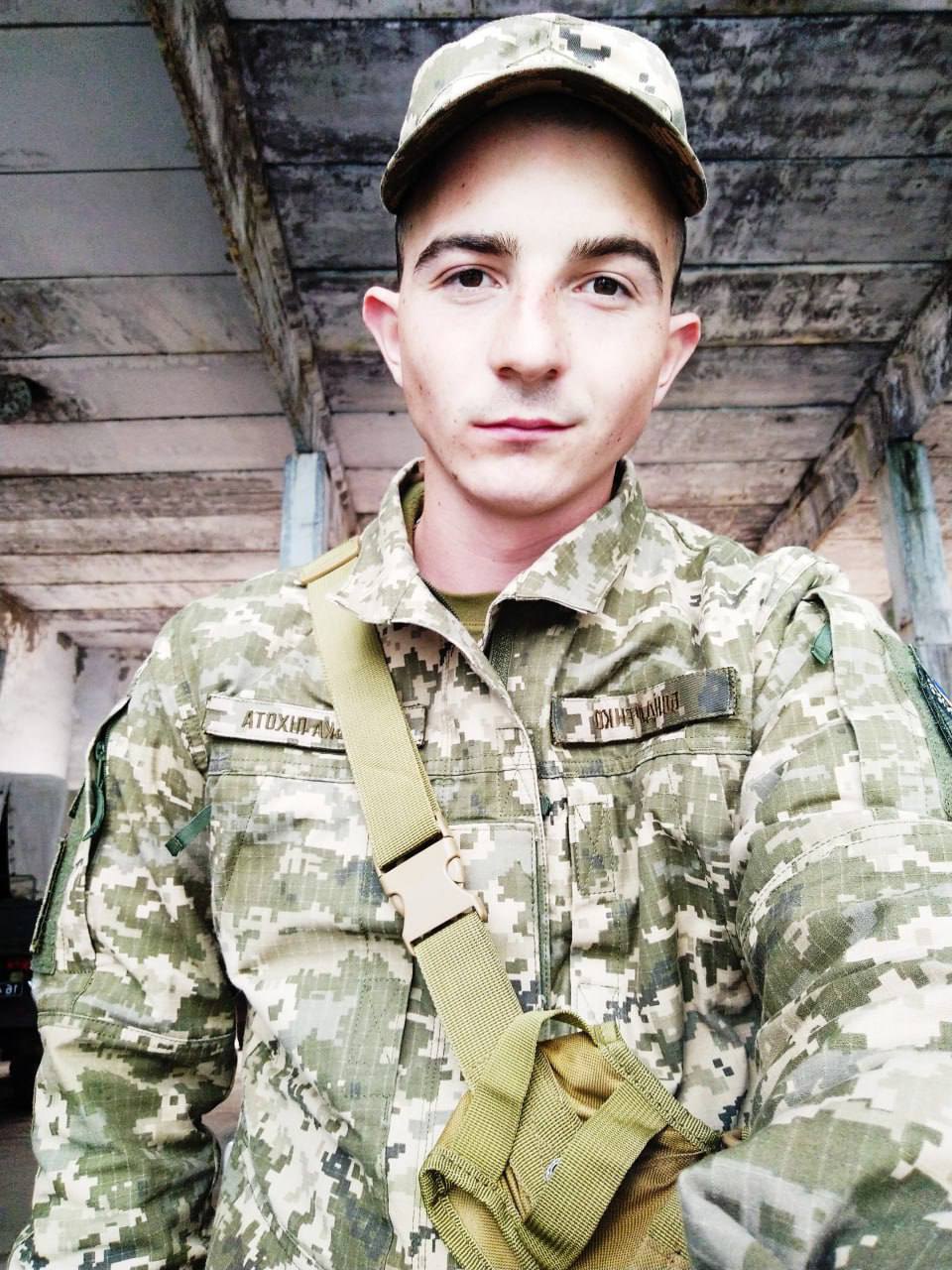‘As an ambulance driver, my task was to evacuate the wounded and the bodies of the dead’
We meet in a coffee shop in Talne. Sasha (short form of the name ‘Olexandr’) is a short-cropped brunette in a black hoodie and grey sweatpants.
- On 14 September, when I was released from captivity, I weighed 60 kilograms. On 30 October, I returned to my fighting weight of 77 kilograms. It turns out that I gained 17 kilograms in a month and a half,’ he smiles. ’While I was in captivity, I missed borsch and herring the most. And also some sweets.
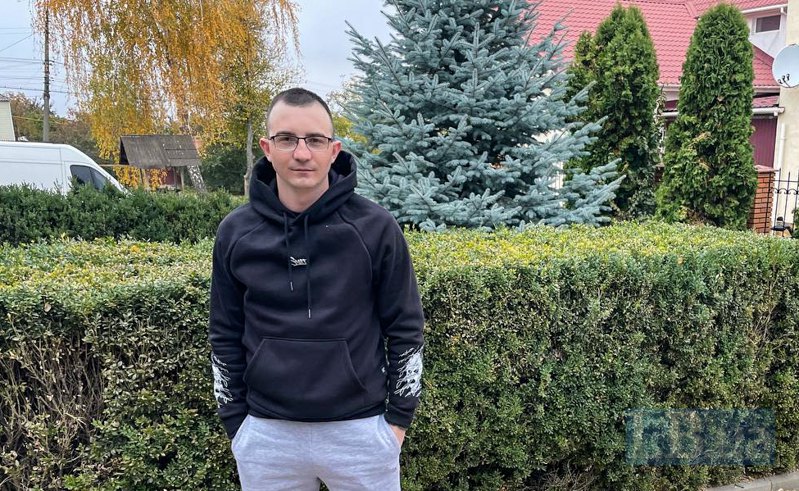
While we are waiting for coffee, Oleksandr tells us his short biography.
- He was born in Kobrynova Hreblya and finished 9 grades in the village. I was the youngest in the family, because I have a brother five years older. After school, from 2016 to 2019, I have studied in Cherkasy, at a road lyceum. I got my driving licence and worked for several companies, delivering groceries. In November 2019, I said that I wanted to serve in the army. I made the decision without regard to the example of his father, who was then fighting in the elite 36th Marine Brigade near Mariupol. My parents, especially my mother, were not very enthusiastic about my decision. However, I talked to my dad, and when he saw my persistence, he said he would find me a place as a driver in the 36th Brigade.
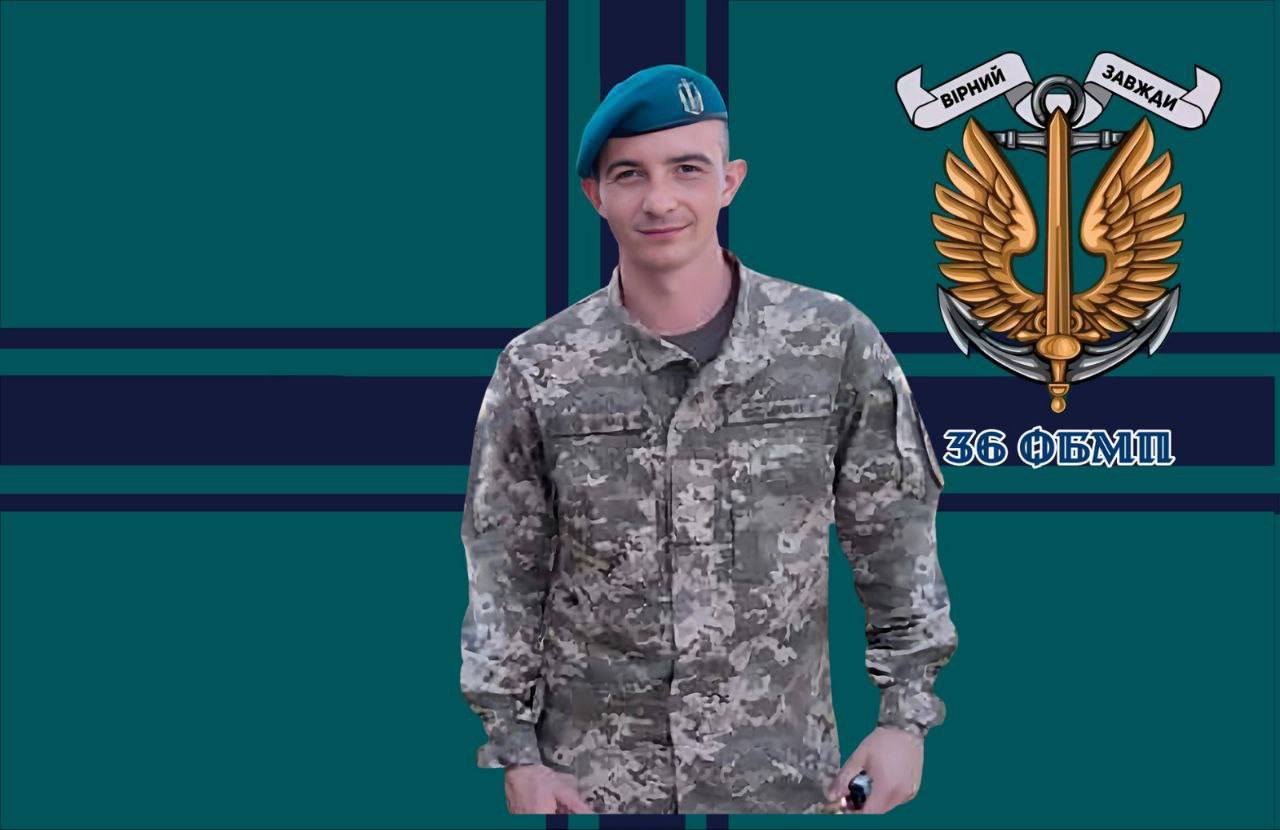
In January 2020, Oleksandr signed a contract, completed a marine course in Mykolayiv a month later and was assigned to the brigade as a driver-paramedic.
- ‘I liked everything about the brigade - the training, tactical medicine, and the car I was given - an American military Hummer,’ he continues. ‘In June, we went to the training ground in Oleshky, where we had a combat drill. In July, we arrived for a rotation in the village of Vodyane near Mariupol. My task was to evacuate the wounded and the bodies of the dead. On 27 July, I evacuated a seriously wounded man whose leg had been blown off. Thank God, I didn't lose my cool and did everything properly. After 11 months in the war zone, we returned to Mykolayiv in the spring of 2021. We were in different places with my father - he was a mortar platoon driver, and I was a medic.
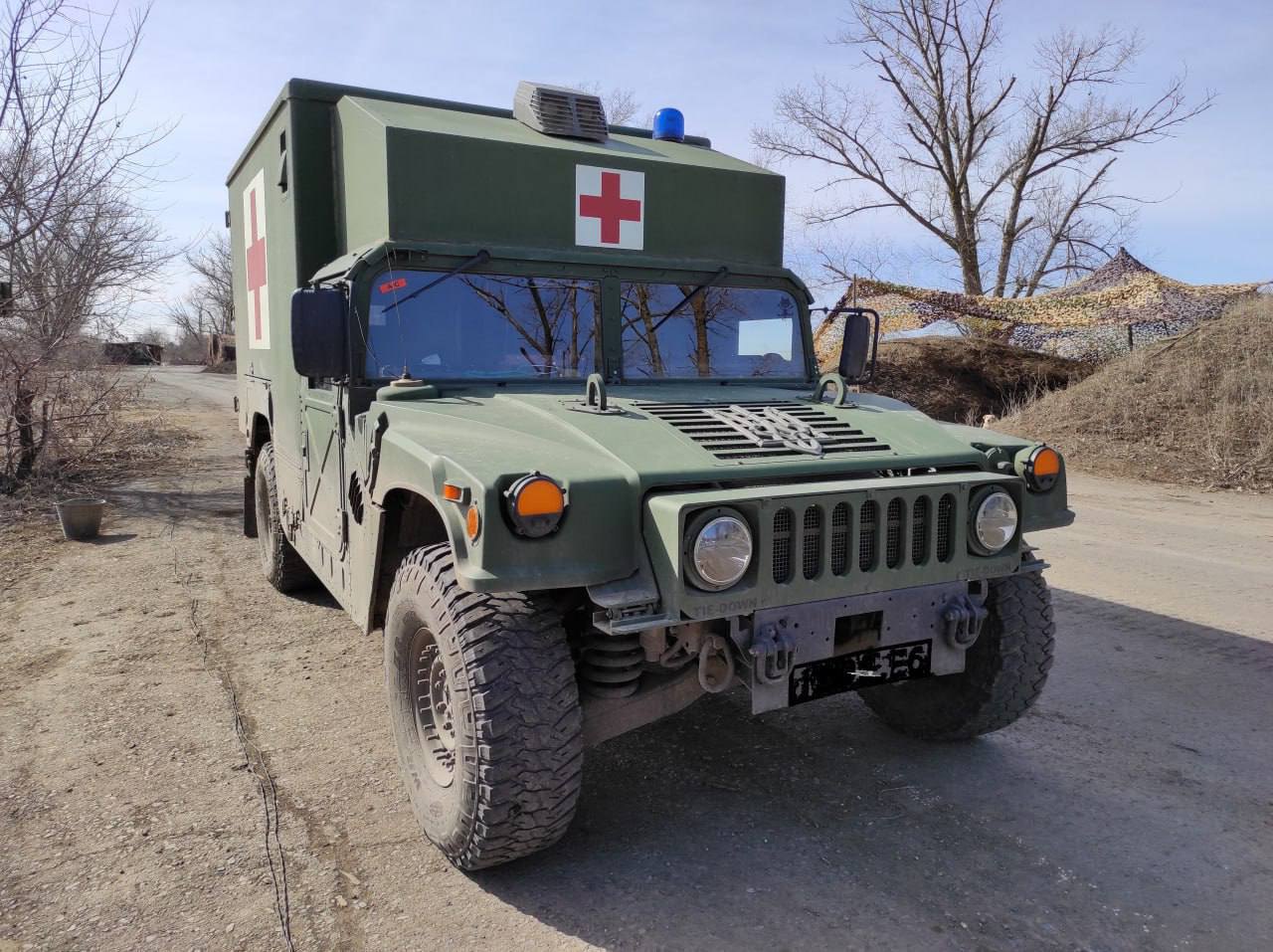
At the same time, Oleksandr received a month's leave, during which he met his fiancée in Talne. And in December 2021, after another series of exercises and training, the 36th Brigade returned to Vodyane.
- When re-entering the combat zone, I was no longer nervous. I knew what to do. It was just hard to bear being separated from my girlfriend. I tried not to think about the big war that was coming - I just did my job. And we were not prepared for it.
‘Going outside for water meant dying immediately’
- Four days before the war started, the orcs (russians) began furious shelling, including with banned 152mm artillery. The scouts reported to us about the accumulation of equipment on the other side, but ordered us to continue observing. At four in the morning on 24 February, a heavy shelling of the command and observation post and all the positions of the guys on the front line began. We lost communication, and the Russians moved to the village of Talakivka, trying to break through. The first wounded civilians came from this village. Aviation was used against us - helicopters and planes. The first bomb arrived and simply destroyed the position. We had two dead. The body of one was found, but the other was not. However, the Russians did not manage to break through - we held our positions firmly until 28 February. It was only when the enemy broke through from the Crimea and the threat of encirclement arose that on 1 March our battalion withdrew to Mariupol, to the Ilyich Iron and Steel Works .
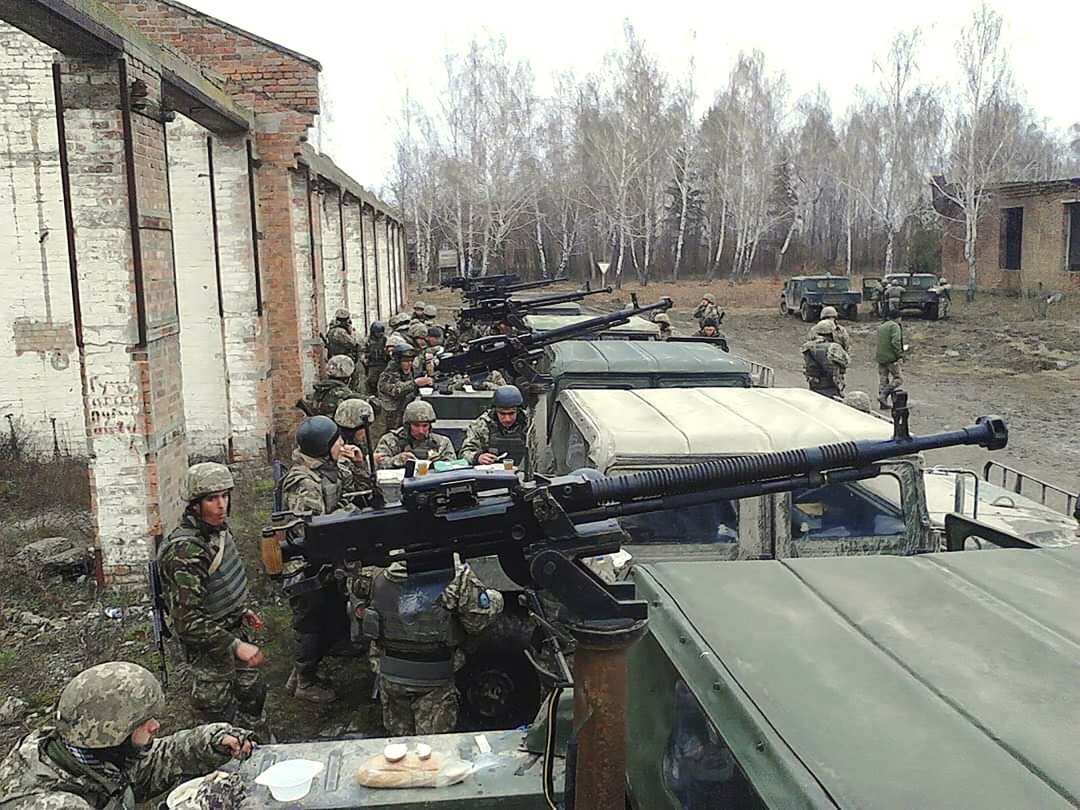
The medical platoon was based in one of the maternity hospitals. The Russians brought in the navy and began to demolish floor after floor of the building with ship artillery. The wounded were still being evacuated by helicopters to Dnipro until the end of March. 'From 1 to 20 (March), we defended the Volonterivka area. Civilians were constantly coming to us, asking for medical help and food and water, because they had nothing. And this was under continuous enemy air raids. We could not do anything because we did not have any air defence units.
After 20 March, the medical platoon was also relocated to Ilyich Iron and Steel Works.
- ‘Despite the belief that there were bunkers at the steelworks where we were hiding, there was actually only one bunker, which became a mass grave for many guys, including my friends, when a three-tonne bomb hit it,’ says Oleksandr. ‘Despite constant air raids, we held the plant until 11 April. Later, the command informed us that we were going to break through to Ukraine in a convoy - tanks in front, the rest of us behind. However, the entire convoy was simply shot.
After this attempt, it was decided that everyone would break out on their own. Some decided to change into civilian clothes, others decided to surrender. My father and I, along with many others, broke through to Azovstal, where the Azov regiment was located. We put Russian insignia on our vehicles and, with 120 units, deceived the Russians and entered Azovstal. There was a shortage of food and ammunition. We even had to eat dog food. In early May, I finally lost hope that I would get out of there alive. Going outside for water meant dying immediately. We broke through the technical pipes and waited for the kettle to boil. Then we boiled it on the fire. The hospital was at the Zalizyaka position. It was scary to even go there: the guys were lying on top of each other - amputees, seriously wounded. Attempts to break through by helicopters and evacuate the wounded ended tragically - two vehicles out of wounded were shot down. On 15 May, we were lined up and told that the only way out was captivity. They assured us that we would stay there for a maximum of three months, and no one would beat us. On 20 May, representatives of the Red Cross were present during the surrender, which only strengthened our confidence that everything would be fine.
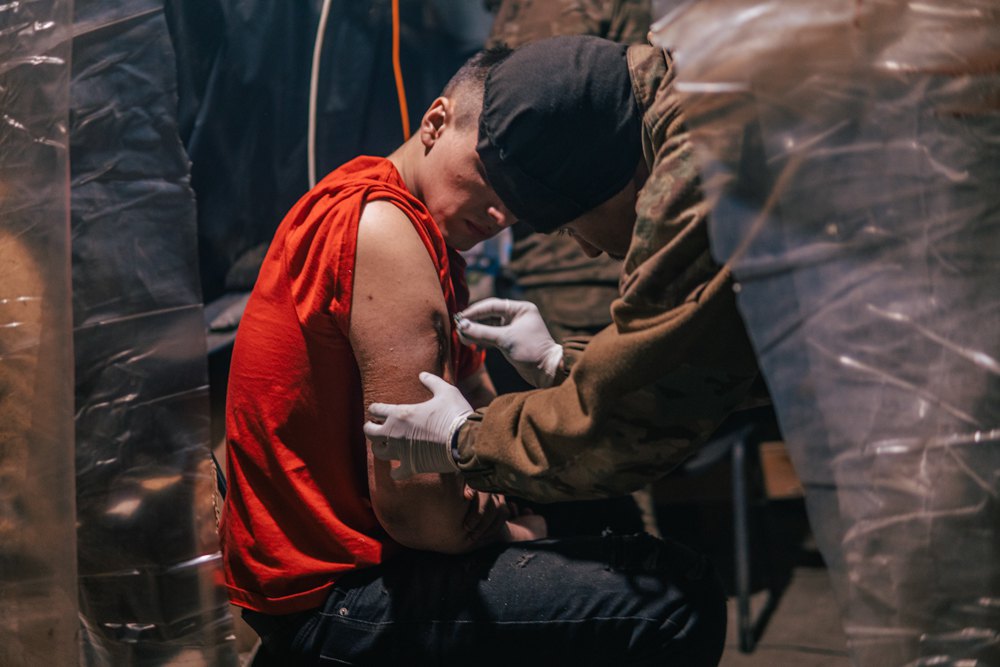
“We were rolling on the ground, and they continued to beat us”
The captured defenders of Mariupol were taken to the notorious Olenivka in Donetsk Region. There, all of Oleksandr's documents were confiscated, he was photographed, and FSB representatives conducted his first interrogation. On May 25, three Kamaz trucks took the prisoners to a prison in Taganrog, Russia.
- I was riding in the third car and heard the guys from the first two cars being beaten upon arrival. We jumped out blindfolded and couldn't see anything, and we were being beaten mercilessly. (Abuse and beatings upon arrival at a colony or detention center in Russia are called “reception”. According to the UN Independent International Commission, “reception” is used in most institutions where Ukrainian citizens are held). I was dumbfounded, I just could not believe that this was possible. We were rolling on the ground, and they were beating us and beating us.
It was in the detention center that I was first stunned with a stun gun - a terrible thing. In the cell, I was treated ideologically - forced to learn Russian songs and poems. During the first interrogation, I told the truth - that I was a driver of an evacuation vehicle and took out the wounded. They didn't believe me, so they connected electric wires to my neck and shocked me. I immediately lost consciousness. During further interrogations, I told them that there were many witnesses among the prisoners who saw where I was and what I was doing. However, they wanted me to incriminate myself and admit that I had shot civilians, destroyed Mariupol and looted. In fact, they wanted to shift their guilt onto us. On June 7, we were transferred to Voronezh, where things got even worse. They beat us even harder. They beat us just because they had the opportunity. They used sticks and shockers. The beatings were organized at least once a week. They asked: “Did you kill civilians?”. They hear the answer and beat him. A week later, the situation repeats itself: “Do you remember?” - ‘No’. And again, another brutal beating. Then the investigators change, and it starts all over again.
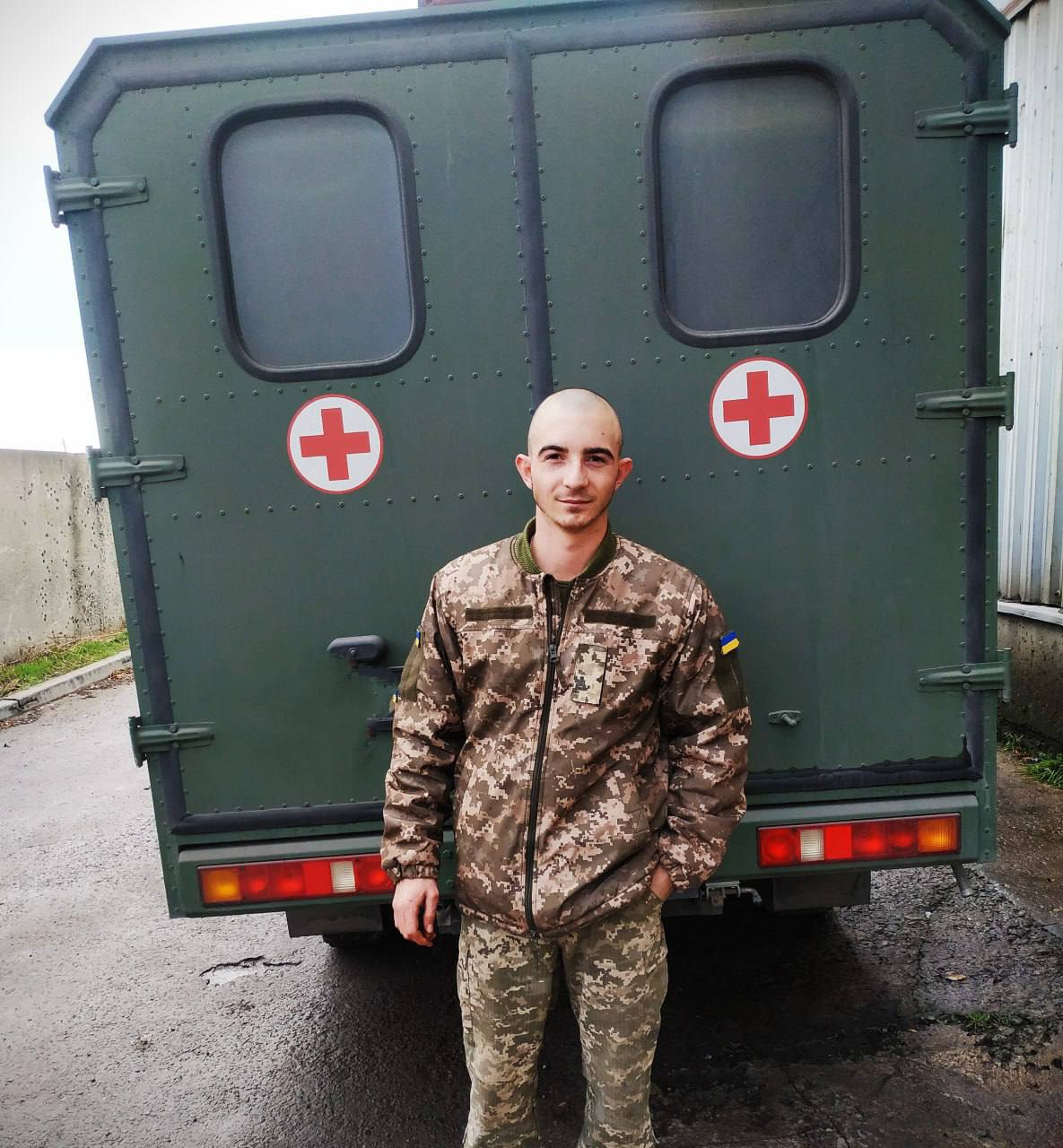
On October 1, 2022, Oleksandr was taken to the village of Pakino in the Vladimir Region. They played Ukrainian music to humiliate us. During interrogations, they put his face on the floor and beat us on the heels with sticks. They fed us very poorly - soup with one onion floating in it and two spoons of porridge. Without exception, all Russians, including civilians, treated the Ukrainian prisoners with great contempt, calling them murderers and fascists. Instead of a balanda, prison cooks could hit you in the head with a ladle.
Oleksandr stayed in Pakin from October 2022 to June 2023. In June 2023, Bondarenko was transferred to the village of Udarnoye in Mordovia. There, Russians once punished the famous dissident Vyacheslav Chornovol.
"They electrocuted my genitals. They beat me on the head with rubber sticks. It was all accompanied by loud laughter."
- He was in the same place as me - in the huge four-building colony No. 10. There are more than 300 people in each building. A total of one and a half thousand. In Mordovia, during the “reception” they beat me very badly.
Every interrogation was torture. They beat me on the buttocks with rubber sticks until the skin turned to burdock. Then they poured alcohol on them and continued to beat them. They electrocuted my genitals. They beat me on the head with rubber sticks. All this was accompanied by loud laughter.
The interrogations were weekly. They asked the same question: what do I know about the killing of civilians in Mariupol? Again, they demanded that I take responsibility. If I didn't agree, they put me on my stomach, wrapped a cloth around my head, handcuffed my hands behind my back, and poured water on my head. The person felt as if he was suffocating and drowning. They were taken out of the cell to the toilet on command. Eight prisoners were given two minutes to make it. My biggest fear was that I would return home disabled. There were four contract soldiers with me in the cell, two mobilized and two civilians who were grabbed right on the street in Irpin because the Russian patrol did not like their documents. And that was it, the man disappeared. While the military still have a chance to be exchanged, civilians will probably wait until the end of the war.
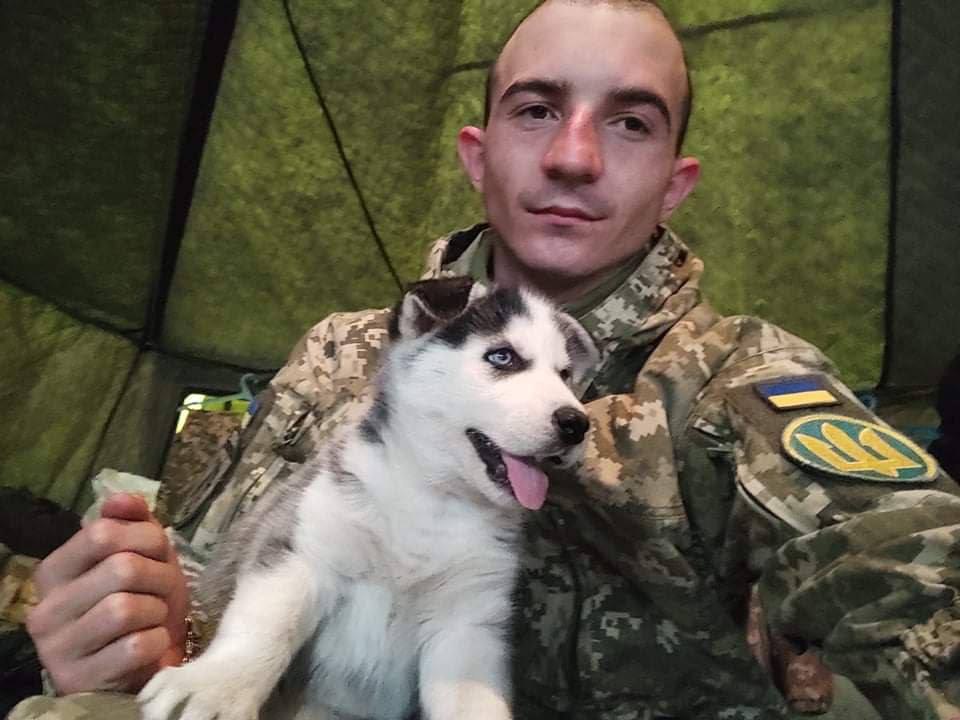
“Before the Russian Ombudsman's visit, no one was beaten for a week, and they stopped setting dogs on us”
One day, the Russian Human Rights Commissioner Tatiana Moskalkova came to check on us. We hadn't been beaten for a week, and they stopped setting dogs on us, which was one of their favorite pastimes. They instructed us what to say, how to respond. However, one guy from the neighboring cell complained that he had no way to contact his family. The next day he was beaten with particular cruelty. They could not take him to the bathhouse or deprive him of walks. A month before the exchange, I hadn't been on any walks at all. We had no information - they said that Ukraine no longer existed. They showed us propaganda videos where the hosts claimed that the Azov regiment and the 36th Brigade had bombed Mariupol.
On September 13, 2024, a Friday, Oleksandr recalls, he woke up thinking about how to avoid another interrogation and beating. Suddenly, contractors were called from the first three cells to the corridor with their belongings. Then they passed Sasha's cell #4 and called from the other cells. On their way back, they stopped: “We need to open the fourth one. Bondarenko, come out with your things!”.
- “I was afraid that they would throw us into another cell,” says Oleksandr, “but they lined us up and gave us our things. I started thinking about a new stage. However, this time they did not beat us at all. We were loaded onto an airplane, and it was my first airplane trip in my life. We flew all night until we were received by the military. Here, for the first time during my captivity, I heard a woman's voice when some girl was writing us down. Instead of a convoy, we were taken to a bus.
Someone from the convoy made a mistake: “You are going for an exchange!”.
Almost immediately I heard a reply from behind: “This is the eighth time I'm going for an exchange!”.
However, they fed us Russian rations - it was the first time. Hope appeared. They gave us a cigarette and drove us straight to the Chernihiv Region. A girl who was on the bus told us about the fighting in the Kursk Region. It was a shock, and it was happiness. I didn't believe I was in Ukraine until I called my mom. I was especially happy when my mother told me that my Katya was waiting for me, and when she learned about my return, she quit her job and went to see me.
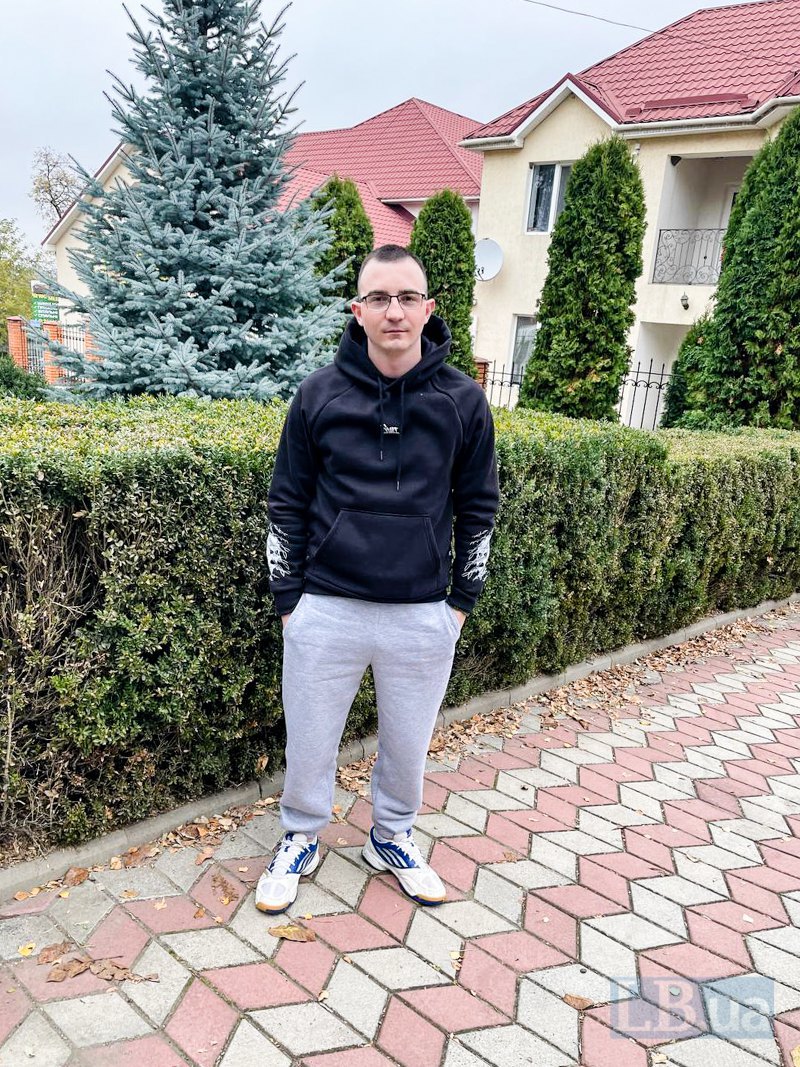
Oleksandr says that he still dreams about the cell and captivity, but much less often than the fighting in Mariupol. His biggest impression after returning is people having fun and living as if there was no war.
Next week, Bondarenko plans to start treatment. In captivity, the guy got a lot of sores. One of them is a cyst from beatings on his arm, which for a long time did not bend at all.
Oleksandr Bondarenko was awarded the Order “For Courage” of the III degree and the medal “For Saved Lives”.
